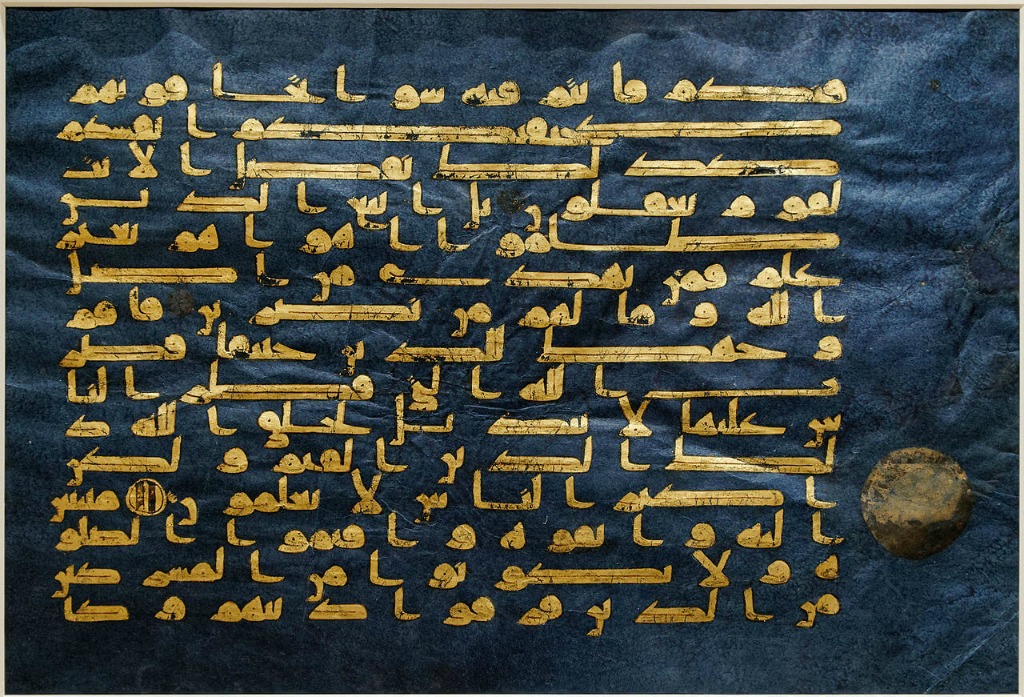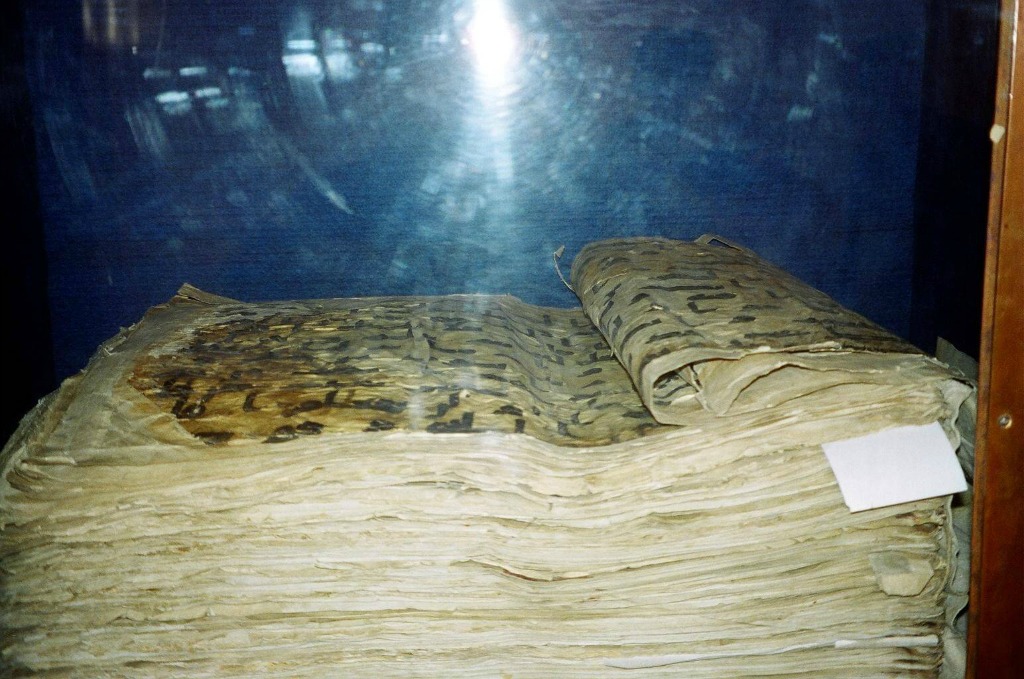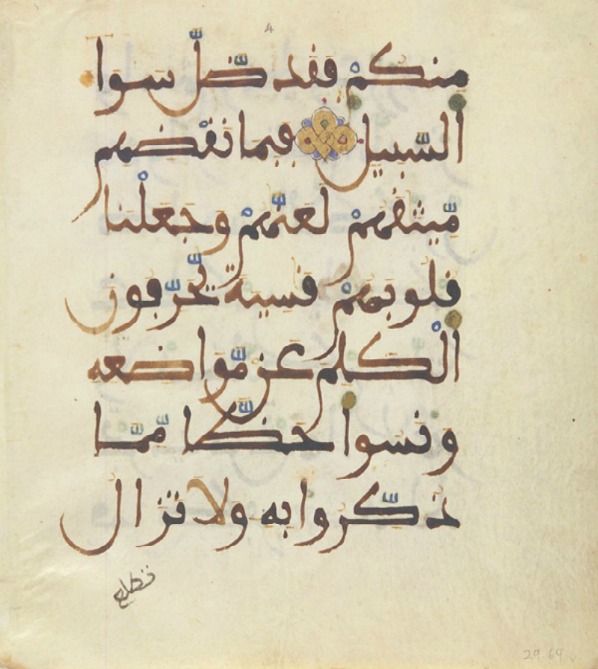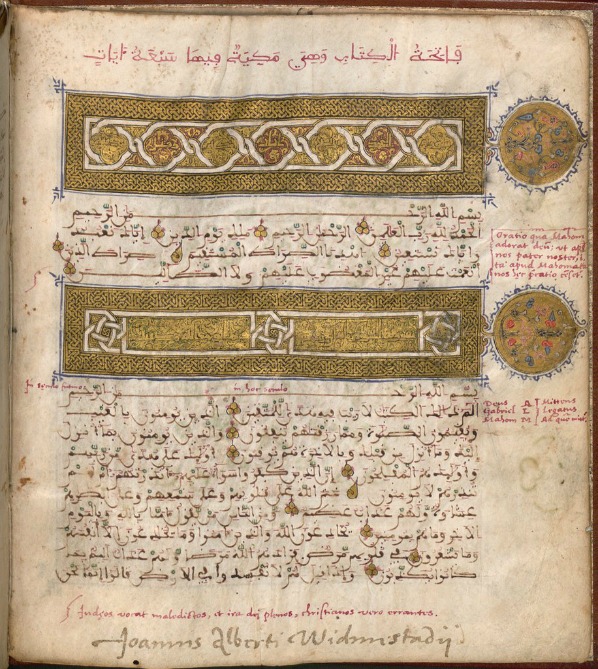
Allah said in Surah al-Hijr, Ayah 09:
Indeed, it is We who sent down
the Quran and indeed, We will be its Guardian.
And undoubtedly, the
present-day Quran is same as the Quran which was revealed to Prophet Muhammad
(PBUH). In this post, we take a look at some of the oldest manuscripts of the Quran,
including ones that date back to the days of Prophet Muhammad (PBUH) and the
Rightly-Guided Caliphs.
10 Oldest Manuscripts of The
Quran
1. Birmingham Quran Manuscript

In 2015, at the University of
Birmingham, scientists found an old Quranic manuscript on parchment, using
clearly legible Arabic Hijazi script. It is said to be one of the oldest
manuscripts, and it dates back to sometime between 568 and 645 CE, that is,
probably sometime during the life of Prophet Muhammad (PBUH) himself.
2. Sana’a Quran Manuscript

The Sana’a Quran manuscript was
found in Yemen in 1972 during the restoration of the Great Masjid of Sana’a.
The manuscript is written on parchment, and comprises two layers of text, both
of which are in the Hijazi script. Most likely, this manuscript dates back to
sometime between 646 and 671 CE.
3. The Topkapi Quran Manuscript

The Topkapi Manuscript is dated
to the late 1st century or early 2nd century AH (i.e. early or mid-8th century
CE). It is written in Kufic script and contains more than 99% of the text of
the Quran. With only two pages (23 verses) missing, this manuscript is the
closest to the complete text of the Quran among others of the same time period.
4. Samarqand Quran Manuscript

Samarqand Quran Manuscript
dates back to the 2nd century AH, that is the 8th century CE. The manuscript is
very fragile and is placed in a cupboard to prevent further damage. It is a
massive Quranic manuscript composed in Kufic script.
5. Parisino-Petropolitanus Quran
Manuscript

The Codex
Parisino-Petropolitanus, one of the oldest surviving manuscripts of the Quran,
was found among Quranic fragments which were kept in the al-Amr Masjid in
Fustat (Egypt) until the end of the 18th century. Scientists have dated the
manuscript to belong to sometime around the late 7th century CE or early 8th
century CE.
98 surviving sheets of this
manuscript are preserved across different locations, such as Bibliotheque
Nationale de France, The National Library of Russia, The Library of Vatican,
and The Khalili Collection in London. This manuscript was produced by five
different scribes writing in the Hijazi script, probably working concurrently
in order to meet the demand for a faster production.
6. The Blue Quran Manuscript

The Blue Quran is a late-9th to
early-10th century CE Fatimid Quran manuscript in Kufic script. It is written
in gold and decorated in silver on vellum colored with indigo. Today, most of
the surviving pages of this manuscript are placed in the National Institute of
Art and Archaeology, at Bardo National Museum in Tunis, with detached folios
being showcased in museums worldwide.
7. Ibn al-Bawwab Quran
Manuscript

Ibn al-Bawwab Quran
Manuscript is a fully-surviving Quran in
cursive style (Nakshi script). It is currently placed in the Chester Beatty
Library, Dublin. This Manuscript was written by an Arab Calligrapher, Abu al-Hasan
Ali ibn-Hilal, commonly known as Ibn al-Bawwab in Baghdad. This manuscript
dates back to 391 AH.
8. Al Andalus Quran Manuscript

Al Andalus Quran Manuscript
dates back to 12th century CE. It is
written in Kufic style.
9. The Maghribi Quran
Manuscript

Maghribi Quran Manuscript is a
detached folio of the Quran from North Africa, and it dates back to the 13th
century CE. This manuscript is written on a parchment in Maghribi Script, which
was the popular form of calligraphy in North-west Africa.
10. Seville Quranic Manuscript

Seville Quranic Manuscript is a
13th-century manuscript, and it counts among the select few surviving oldest
manuscripts of the Quran from Spain. Completed in Seville in 1226 CE (624 AH),
this manuscript is written on a parchment in condensed Andalusian script. As of
now, it is kept at The Bavarian State Library in Munich, Germany.
Image Sources
Birmingham Quran Manuscript |
Sana’a Quran Manuscript | The Topkapi Quran Manuscript | Samarqand Quran
Manuscript | Parisino-Petropolitanus Quran Manuscript | Blue Quran Manuscripts
| Ibn al-Bawwab Quran Manuscript | Al Andalus Quran Manuscript | Maghribi
Quranic Manuscript | Seville Quranic Manuscript
Comments
Post a Comment